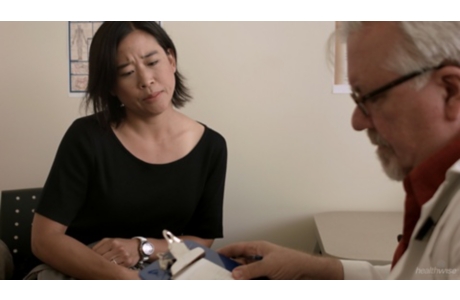Anticoagulants
Make sure you know about each of the medicines you take. This includes why you take it, how to take it, what you can expect while you're taking it, and any warnings about the medicine.
The information provided here is general. So be sure to read the information that came with your medicine. If you have any questions or concerns, talk to your pharmacist or doctor.
What are some examples?
Here are some examples of anticoagulants. For each item in the list, the generic name is first, followed by any brand names.
- Apixaban (Eliquis)
- Dabigatran (Pradaxa)
- Rivaroxaban (Xarelto)
- Warfarin (Jantoven)
This is not a complete list of anticoagulants.
Why are anticoagulants used?
Anticoagulants are used to treat and prevent problems caused by blood clots. These problems include deep vein thrombosis, pulmonary embolism, and stroke.
Anticoagulants may be used by people who:
- Have a replacement heart valve.
- Have atrial fibrillation.
- Have coronary artery disease or peripheral artery disease.
- Have a deep vein thrombosis or are at high risk for one.
- Have had a pulmonary embolism or are at high risk for one.
How do they work?
Anticoagulants prevent blood clots from forming in your blood vessels and heart. They also keep blood clots from growing bigger.
Anticoagulants are often called "blood thinners."
What about side effects?
You may have bleeding or bruising when you use anticoagulants. This could be an emergency.
General information about side effects
All medicines can cause side effects. Many people don't have side effects. And minor side effects sometimes go away after a while.
But sometimes side effects can be a problem or can be serious.
If you're having problems with side effects, talk to your doctor. Your doctor may be able to lower your dose or change to a different medicine.
Always be sure you get specific information on the medicine you're taking. For a full list of side effects, check the information that came with the medicine you're using. If you have questions, talk to your pharmacist or doctor.
What are some cautions about anticoagulants?
Cautions for anticoagulants include the following:
- Anticoagulants increase the risk of bleeding and bruising. This could be an emergency.
- Stopping the medicine can increase your risk for a deep vein thrombosis, pulmonary embolism, or stroke. It's important to talk to your doctor before you make any changes in how you take this medicine.
General cautions for all medicines
- Allergic reactions. All medicines can cause a reaction. This can sometimes be an emergency. Before you take any new medicine, tell the doctor or pharmacist about any past allergic reactions you've had.
- Drug interactions. Sometimes one medicine may keep another medicine from working well. Or you may get a side effect you didn't expect. Medicines may also interact with certain foods or drinks, like grapefruit juice and alcohol. Some interactions can be dangerous.
- Harm during pregnancy or breastfeeding. If you are pregnant, trying to get pregnant, or breastfeeding, ask your doctor or pharmacist if all the medicines you take are safe.
- Other health problems. Before taking a medicine, be sure your doctor or pharmacist knows about all your health problems. The medicine for one health problem may affect another health problem.
Always tell your doctor or pharmacist about all the medicines you take. This includes prescription and over-the-counter medicines, vitamins, herbs, and supplements. That information will help prevent serious problems.
Always be sure you get specific information on the medicine you're taking. For a full list of warnings, check the information that came with the medicine you're using. If you have questions, talk to your pharmacist or doctor.
Credits
Current as of: July 31, 2024
Author: Ignite Healthwise, LLC Staff
Clinical Review Board
All Ignite Healthwise, LLC education is reviewed by a team that includes physicians, nurses, advanced practitioners, registered dieticians, and other healthcare professionals.



